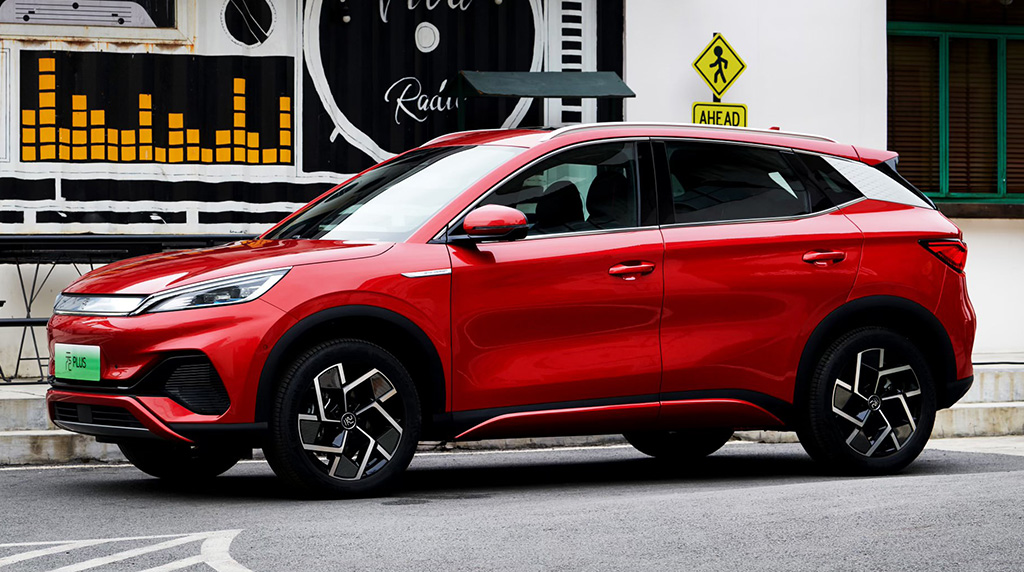BYD says it is currently holding orders for 700,000 EVs worldwide.
The company has confirmed it has bought 96 hectares of land in Thailand’s Eastern Economic Corridor (EEC) from the country’s WHA Group and will invest $A716.5 million to build a factory capable of producing 150,000 EVs a year.
The Chinese car-maker aims to sell 10,000 units a year of its right-hand drive cars in Thailand and export the rest, primarily to Australia, the UK and some Southeast Asian countries.
It will manufacture the full electric Atto 3 as well as batteries and EV components.
BYD is currently selling on the Australian market with a single model, the Atto 3, and will be later joined by other models. The brand exclusively retails through the national Eagers Automotive network.
BYD’s factory will be built with the support of the Board of Investment of Thailand as part of the Thai government’s recognition of the opportunities of car manufacturing. The support includes tax breaks and subsidies.
Thailand’s Ministry of Finance has now approved 26 electric car projects from 17 companies, which are expected to add up to a total production capacity of 830,000 electric vehicles. This is expected to increase to one million electric vehicles by early 2023.
They include Chinese contract manufacturer Foxconn establishing a joint venture with Thai energy company PTT for the production of electric cars in Thailand.
WHA Group vice chairman David Nardone said China’s growing investment in neighbouring countries including Thailand is triggered by rising costs and travel restrictions in China.
“Supply chain, energy and labour costs have gone up; manufacturers want to meet their suppliers,” said Mr Nardone in an interview with Reuters.
He added that because of demand from manufacturers including those from China, WHA increased its land sales forecast by 55 per cent to 224 hectares for the year.
The interest is also attributed to Thailand wanting to promote electric car adoption in its own car market and its government adopting new incentives from March 2022.
Its goal is to sell only electric cars in Thailand from 2035 and lift EV production to about 700,000 units a year by 2030, representing 30 per cent of the country’s total car manufacturing volume.
BYD looked to Thailand to ease demand for its cars. Despite increasing production volumes, the waiting time for BYD customers remains at four to five months.
BYD’s CEO Wang Chuanfu has been reported by Reuters as saying the company has an unfilled order backlog of 700,000 vehicles.
The car-maker has been hit by power outages due to extreme heat and COVID-19 restrictions.
Despite this, it still sold 174,915 New Energy Vehicles (battery EVs and PHEVs) in August, which is a new record up 184.84 per cent from the 61,409 units a year ago and up by 7.62 per cent from 162,530 units in July.
By the end of 2022, the Chinese manufacturer aims to increase its monthly deliveries to 280,000 units.
The BYD CEO also took a swing at the reform of the tax credit for electric vehicles in the US, calling them discriminatory. He said that if the US government continues to insist on this policy – which gives credit only to EVs made or assembled in the US – BYD would consider temporarily abandoning the US market.
He also said that outside of the Chinese market, BYD will make Europe one of its main targets with three EV models planned this year and an expanded dealer network in Germany and Sweden through the “bricks and mortar” Hedin Group outlets.
It also plans next year to enter Israel and Japan with the three EV models.
BYD said it stopped producing oil-fueled vehicles in March and now focuses on battery-powered and hybrid vehicles.
By Neil Dowling














 Read More: Related articles
Read More: Related articles

